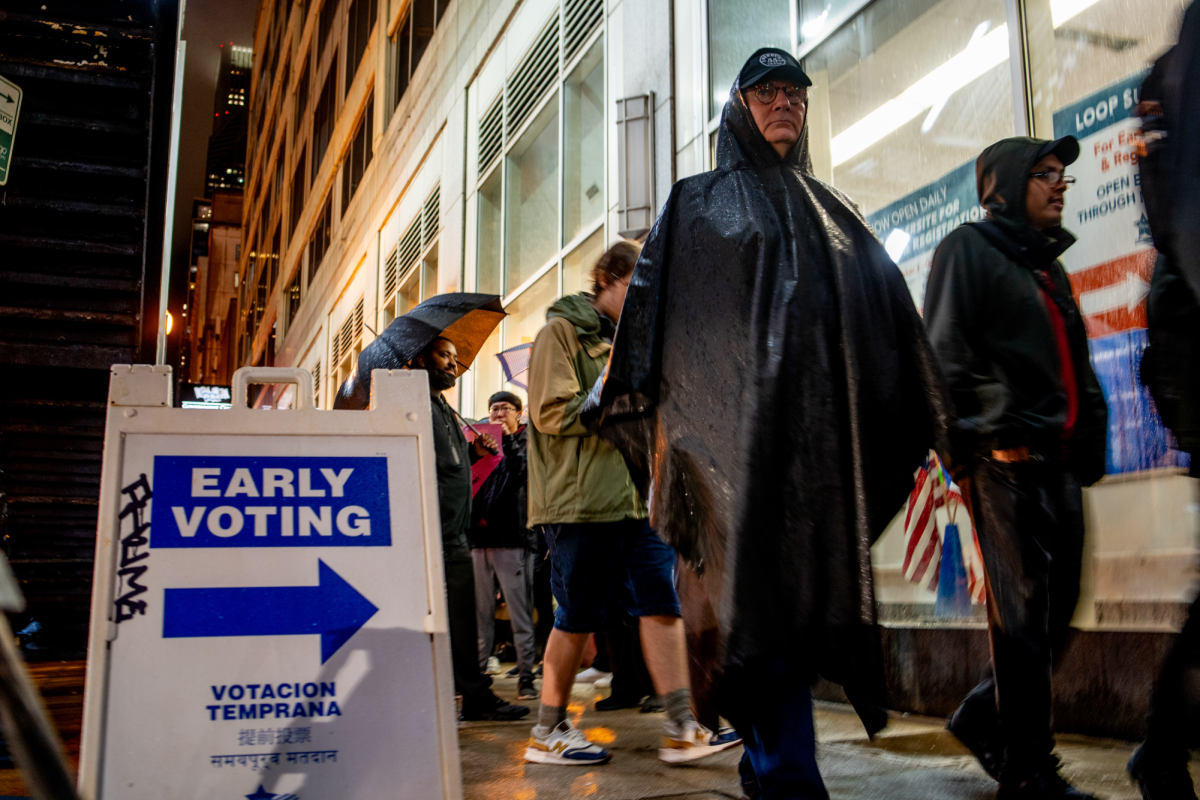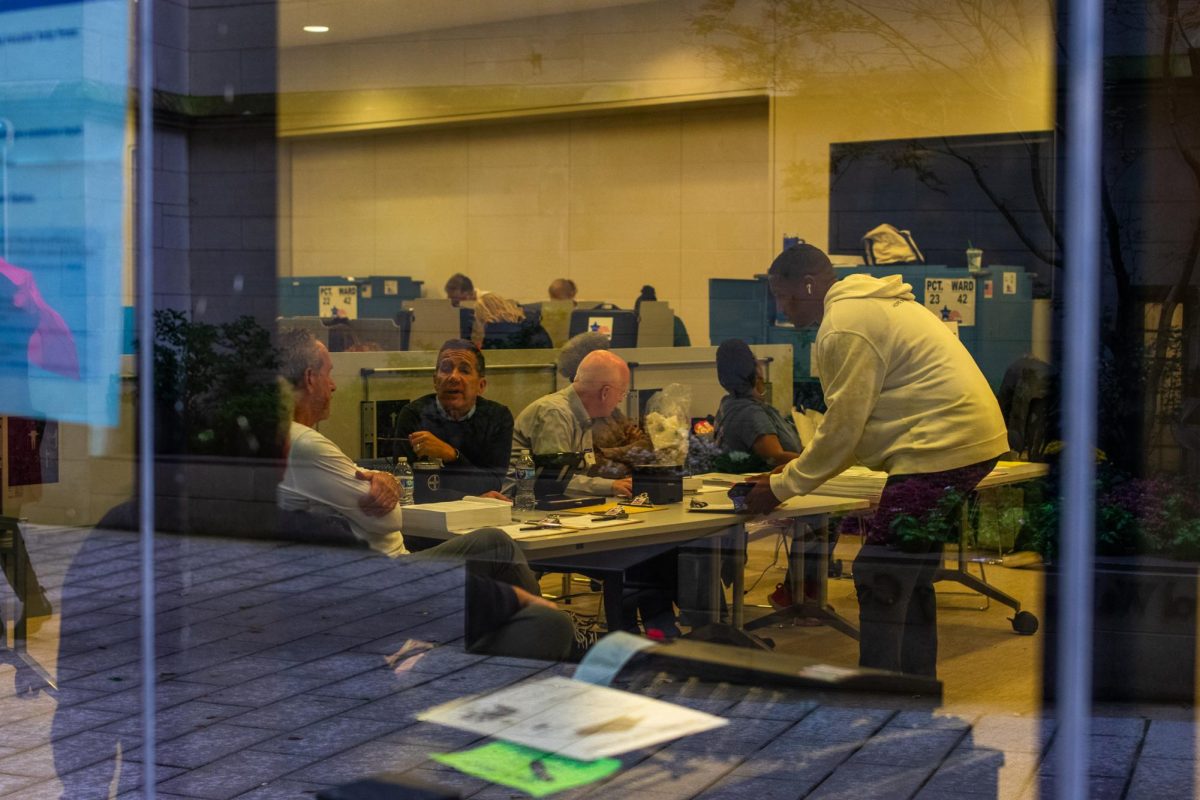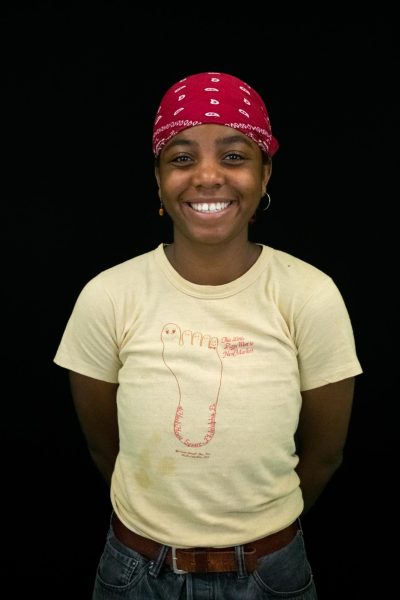Callum Meyer, a sophomore at Columbia College, is a transgender gay man from rural Iowa. An illustration major, he decided to attend Columbia because he wanted to go to an art school in a city. He also hated living in Iowa, he said.
“My last couple years in high school, Iowa passed three anti-trans laws,” Meyer said. “I was banned from playing sports, using the men’s restroom and all trans minors could not pursue gender-affirming care anymore.”
Iowa is one of 26 states that have restricted gender-affirming care. Human Rights Watch estimates that nearly 40%, or 118,300, trans youth aged 13 to 17 live in one of these states. This includes 2,300 youth living in the two states of Arkansas and Montana where courts have put on hold or blocked bans.
In Missouri, a ruling is expected by the end of the year in a major court battle over gender-affirming care. Transgender minors, their families and health care providers have challenged a 2023 law that restricts physicians from prescribing gender-affirming medical care to minors.
In the meantime, Missouri voters will go to the polls on Nov. 5 to decide Amendment 3. If passed, it would reverse the state’s abortion ban, which went into effect in 2022 after the U.S. Supreme Court overturned Roe v. Wade.
Republican Missouri Gov. Mike Parson is campaigning against the amendment, telling voters in an open letter in mid-October that it “also opens the door to allow children to get sex change operations without parents’ knowledge in our state.” But there is nothing in the amendment related to trans-gender care.
In their campaigns, former President Donald Trump and Vice President Kamala Harris have carved out starkly different positions on trans rights and gender-affirming care. Trump has said on “day one” he would reverse the Biden administration’s expansion of Title IX that prohibits federally funded schools from preventing transgender students from using bathrooms, locker rooms and pronouns that align with their gender identities. He also has threatened to cut federal funding to any school or program that includes critical race theory, gender ideology or what he deems “inappropriate racial, sexual or political content.”
“As the saying goes, personnel is policy and at the end of the day, if we have pink-haired communists teaching our kids, we have a major problem,” Trump said in an X video posted on his campaign account.
In a slick anti-trans TV ad, the Trump campaign shows people in drag and trans athletes. “Kamala Harris is for they/them,” the ad proclaims at the end. “Donald Trump is for you.”
The Harris campaign has not officially released any policy proposals concerning gender-affirming care so far. But Minnesota Gov. Tim Walz, who is Harris’ running mate, signed an executive order in May protecting and supporting access to gender-affirming health care for LGBTQ+ people in the state.
Why does this matter?
According to research from the Center for Information & Research on Civic Learning and Engagement, about 41 million members of Gen Z ages 18 to 27 will be eligible to vote in the 2024 presidential election.
Terri Griffith, a part-time instructor in the School of Communication and Culture who identifies as queer, teaches many queer-theory-based classes and asks her students to bring in news articles for discussion.
She said the uptick in laws targeting trans people are being used to frighten LGBTQ+ people.
“Students feel two ways in my opinion,” she said. One is “feeling personally attacked” and the other is feeling badly.
To Meyer, the student from Iowa, the only option for voting is for the third party.
“Living in a red state under both Trump and Biden has made it abundantly clear to me that neither Democrats nor Republicans are going to take significant action to protect LGBTQ+ rights,” he said.
Even though Columbia first-year Margot Torresin, a film and television major, does not favor either candidate, she will still be voting.
“There’s all [this] ‘lesser evil voting,’ but I feel like a lot of people have that notion right now that they don’t support somebody that they don’t agree with,” said Torresin, a transgender woman who has been medically transitioning since she was 16. “I feel like with any president, I don’t think I would have ever agreed with, but am I still going to vote? Yes.”
Torresin is from a part of Wisconsin that borders a very rural area. “A lot of people don’t look at you as an equal,” she said. “It’s nice here to have some of that, and while not all LGBTQ+ experiences are the same, there’s a lot of shared perspectives.”
Many programs and schools that offer LGBTQ+ courses depend on federal funding and thus the outcome of the election.
Columbia is not one of them.
According to Ginny Johnson, assistant vice president of Student Financial Services at Columbia, the college does not receive federal funding to support operational costs because it is a private, non-profit institution.
This is also the case with federal financial aid for students.
“To clarify, federal financial aid funding is not based upon sexual orientation,” Johnson said in an email. “The Department of Education does not collect information on a student’s transgender identity.”
Torresin said that for a lot of people who identify as LGTBQ+, colleges and universities are the first spaces to explore those subjects, and by cutting LGBTQ+ courses, which Trump has proposed, the student body would be impacted.
“I fear that these courses are hanging on by a thread,” she said. “They’re very important because they make people feel seen and they give people a voice.”
While Columbia is not in the crosshairs of federal funding cuts, other public schools and institutions with LGBTQ+ students are in danger of having their rights taken away.
Meyer believes that the best way to advocate for the rights of LGTBQ+ students in K-12 institutions is to show up to protests, sign petitions, engage with the local ACLU and speak up in the community.
“So many young kids don’t have a voice, and we have an obligation to speak up for them,” Meyer said.
To Juniper Czaja, a transfemme student at Columbia, the most important way to advocate for the preservation of LGBTQ+ courses at schools and institutions is to build a community and solidarity through support, specifically through consulting with your friends, dorm mates and people living around you.
“Make your voice known,” said Czaja, a sophomore BFA film and television major. “If you’re comfortable with your identity, be loud and proud about it and highlight the diversity you bring to Columbia and the diversity at Columbia.”
Copy edited by Doreen Abril Albuerne-Rodriguez









